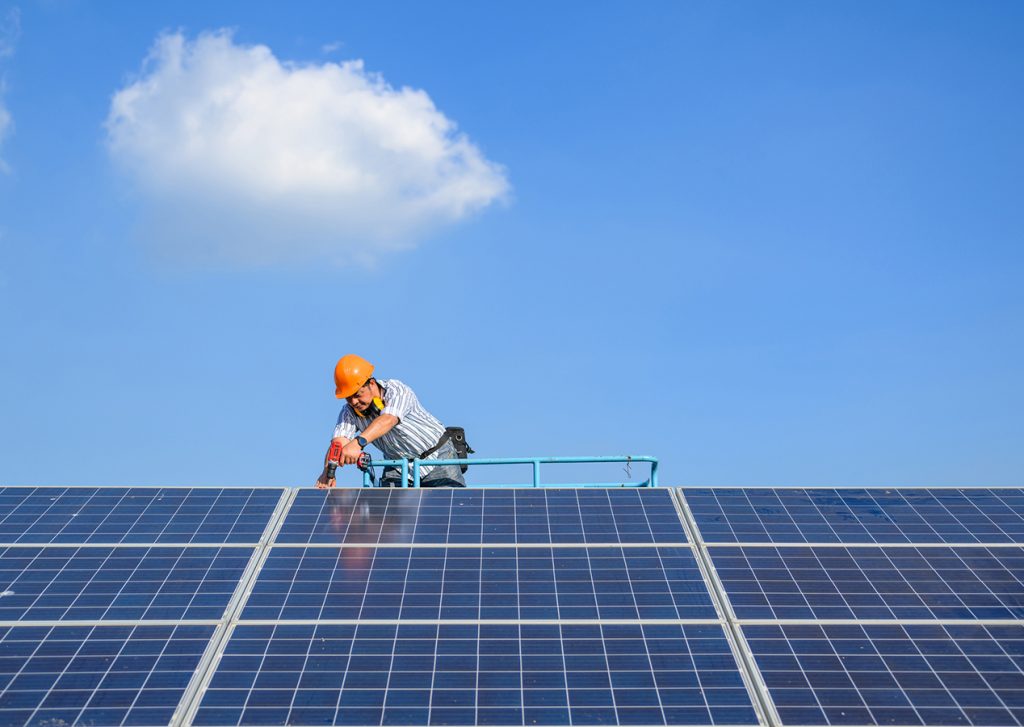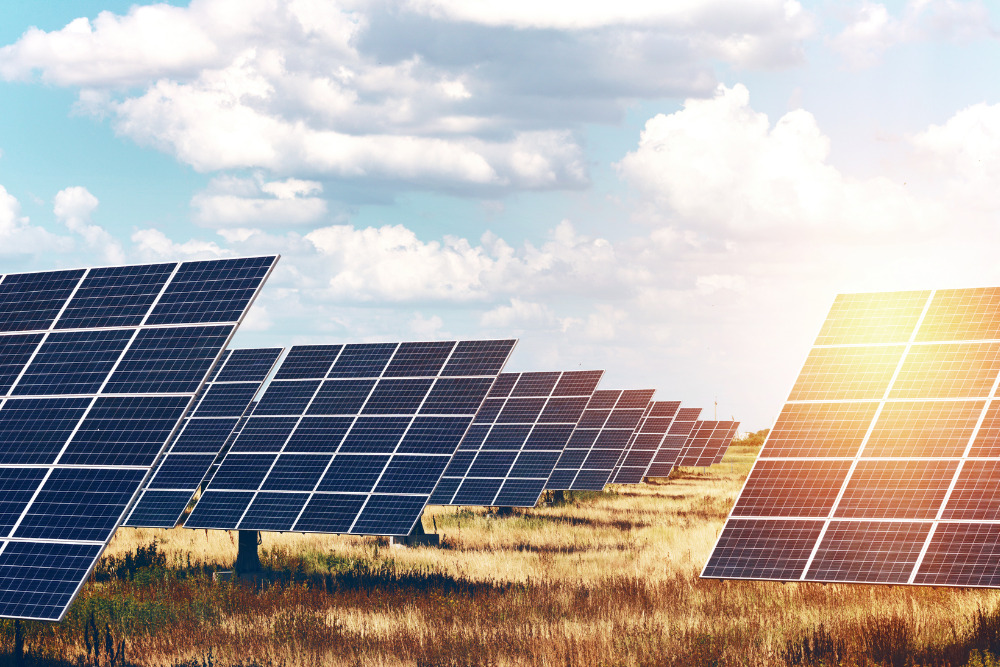Simply Solar Illinois – Reliable Solar Panels for All Your Energy Needs
Simply Solar Illinois – Reliable Solar Panels for All Your Energy Needs
Blog Article
How Solar Power Can Assist You Save Money and Minimize Your Carbon Footprint
The combination of solar energy right into your power portfolio provides a compelling chance for both economic cost savings and ecological stewardship. By utilizing the sun's energy, home owners can significantly reduce their month-to-month utility expenses while additionally safeguarding against the unpredictability of future power prices. The shift to solar adds to a marked decrease in carbon discharges, aligning individual money with wider eco-friendly objectives. As different government motivations end up being offered, the inquiry arises: just how can one effectively navigate the initial investments and continuous advantages of solar technology to make the most of both financial and ecological gains?
Comprehending Solar Power Financial Savings
While the shift to solar power frequently includes an initial financial investment, recognizing solar power cost savings is vital for home owners and businesses alike. Solar power systems can substantially minimize electrical power expenses by taking advantage of the sunlight's power, translating right into substantial long-lasting financial benefits.
Moreover, solar energy systems may get numerous monetary incentives, including tax obligation credit histories and rebates, additionally enhancing their cost-effectiveness. The availability of web metering allows customers to offer excess power back to the grid, creating an added revenue stream. These elements add to the general savings linked with solar power.

In addition to route monetary financial savings, solar power supplies the added benefit of raising residential property worth. Houses geared up with solar panels are typically much more appealing to purchasers, as they promise lower power costs - Simply Solar Illinois. Comprehending these aspects is important for any person considering solar energy, as it highlights not just the possible monetary gains, but also the wider ecological and economic benefits of taking on renewable resource options
First Expenses vs. Long-Term Perks
When assessing solar energy, it is essential to weigh the first prices against the long-lasting advantages. The upfront financial investment for photovoltaic panels, installment, and associated equipment can be considerable, typically ranging from $15,000 to $30,000, relying on the system size and home power requirements. This first expense might deter some property owners; nonetheless, it is essential to take into consideration the possible savings in time.
When set up, solar energy systems can dramatically lower or perhaps get rid of monthly electrical power bills, causing considerable lasting monetary advantages. Research studies show that house owners can conserve anywhere from $10,000 to $30,000 over the life expectancy of their solar system, typically 25 years. Additionally, many states use motivations, tax credit histories, and refunds that can offset preliminary prices, making solar a lot more obtainable.

Reducing Your Carbon Footprint
Decreasing your carbon impact is an important consideration in today's ecologically conscious society, and taking on solar energy is among one of the most effective strategies to accomplish this objective. Solar power is a tidy, renewable energy that significantly diminishes reliance on nonrenewable fuel sources, which are significant factors to greenhouse gas exhausts.

In addition, the widespread adoption of solar modern technology urges the growth of green work and sustains innovations in energy storage and click reference effectiveness. The even more people and companies purchase solar energy, the better the cumulative decrease in carbon exhausts, fostering a cleaner environment for future generations.
Government Rewards and Rebates
Adopting solar power not just benefits the environment yet can additionally result in substantial monetary cost savings, especially with the availability of federal government incentives and refunds. Various federal, state, and local programs are developed to urge house owners and companies to spend in solar energy systems, making the change more budget friendly.
Among one of the most noticeable rewards is the Federal Investment Tax Credit Score (ITC), which allows solar system owners to subtract a substantial percent of the installment expenses from their federal tax obligations. This incentive has been crucial in decreasing the upfront costs connected with solar power systems. Furthermore, many states use their own tax credits, grants, and discounts that can further enhance financial savings.
In addition, some regional federal governments supply property tax obligation exceptions for solar installments, guaranteeing that homeowners do not encounter boosted building taxes as an outcome of their eco-friendly energy financial investments. Utility business might also offer motivations, consisting of web metering and feed-in tolls, which allow solar power individuals to sell excess power back to the grid.
Selecting the Right Solar System
Picking the proper solar system is crucial for making the most of power efficiency and economic advantages. The choice rests on several factors, including power requirements, spending plan, and available room. Home owners should begin by assessing their electrical power usage to establish the system dimension needed for optimum performance.
Following, think about the different sorts of solar modern technologies readily available. Simply Solar Illinois. Solar (PV) panels are one of the most usual, transforming sunlight straight right into electrical energy, while solar thermal systems concentrate on heating water. Each kind has unique benefits relying on specific requirements
Budget plan factors to consider are additionally critical. First installment costs can vary significantly, so it is essential to compare quotes from multiple service providers and you could try these out check out financing choices. Federal government rewards and rebates can additionally minimize the monetary concern, making planetary systems more available.
Final Thought
In recap, solar energy offers a feasible option for accomplishing significant expense financial savings while simultaneously reducing carbon emissions. The initial investment, though significant, returns significant long-term monetary advantages, with prospective cost savings varying from $10,000 to $30,000 over 25 years. The ecological advantages of solar power contribute to sustainable methods essential for combating climate modification. Government incentives improve the usefulness of solar innovation fostering, motivating a change towards a cleaner, much more financially effective power resource.
Report this page